
UNIT 10 Language Acquisition How early in life are we humans cognitive of language?When do we recognize that some of the sounds we hear are distinctive, intentional,meaningful communication?Are we programmed biologically to speak or taught to speak in a social environment? Why do babies pick up a language or even languages so quickly but adults don't?Read on and see if the theories presented in this unit can convince you
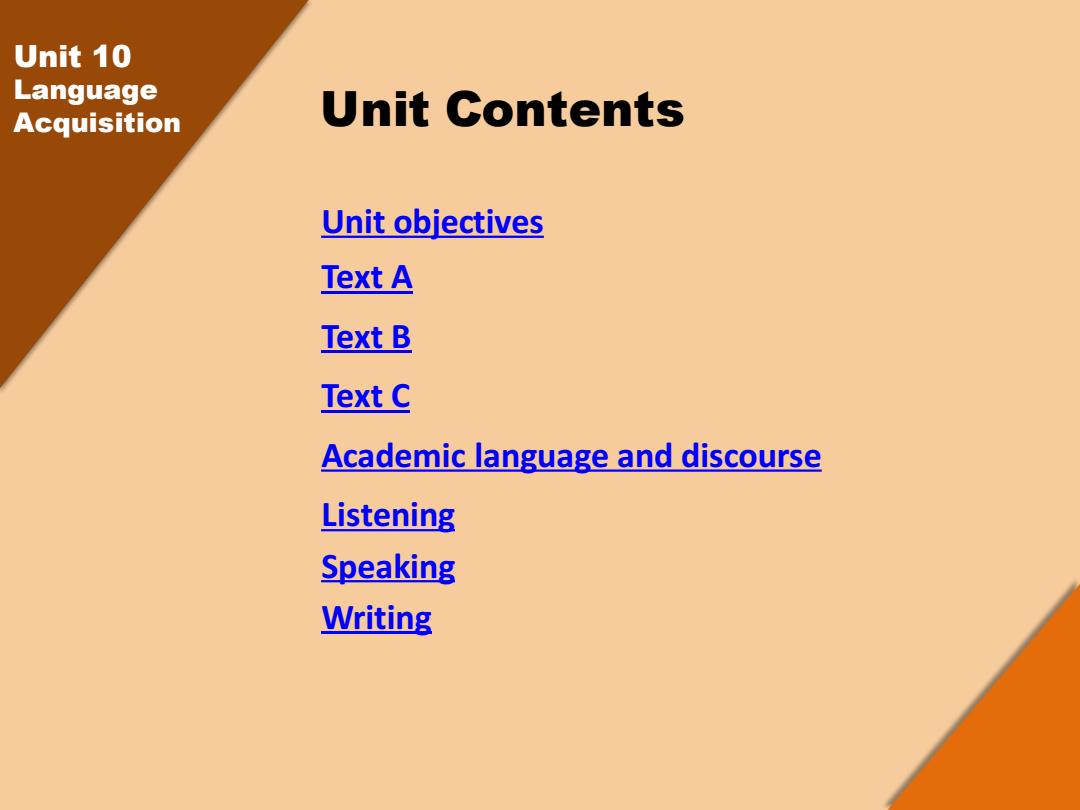
Unit 10 Language Acquisition Unit Contents Unit objectives Text A Text B Text C Academic language and discourse Listening Speaking Writing
Unit 10 Language Acquisition Unit Contents Unit objectives Text A Text B Text C Academic language and discourse Listening Speaking Writing
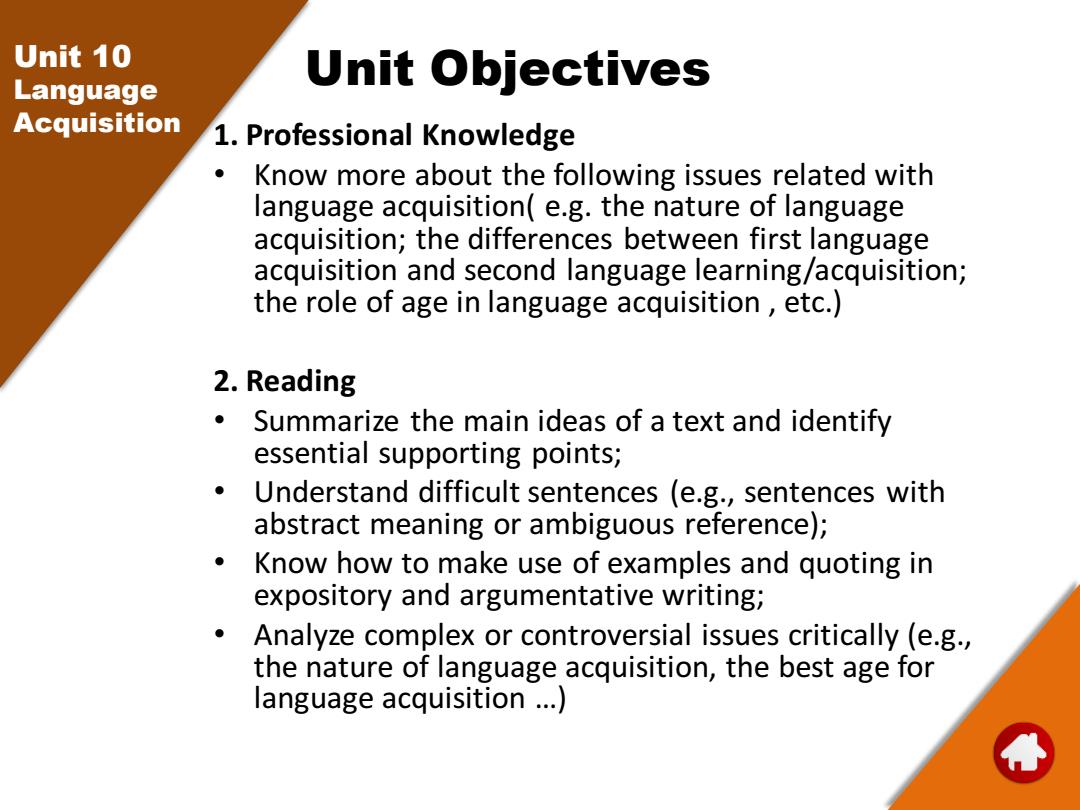
Unit 10 Unit Objectives Language Acquisition 1.Professional Knowledge Know more about the following issues related with language acquisition(e.g.the nature of language acquisition;the differences between first language acquisition and second language learning/acquisition; the role of age in language acquisition etc.) 2.Reading Summarize the main ideas of a text and identify essential supporting points; Understand difficult sentences (e.g.,sentences with abstract meaning or ambiguous reference); Know how to make use of examples and quoting in expository and argumentative writing; Analyze complex or controversial issues critically(e.g., the nature of language acquisition,the best age for language acquisition
Unit Objectives 1. Professional Knowledge • Know more about the following issues related with language acquisition( e.g. the nature of language acquisition; the differences between first language acquisition and second language learning/acquisition; the role of age in language acquisition , etc.) 2. Reading • Summarize the main ideas of a text and identify essential supporting points; • Understand difficult sentences (e.g., sentences with abstract meaning or ambiguous reference); • Know how to make use of examples and quoting in expository and argumentative writing; • Analyze complex or controversial issues critically (e.g., the nature of language acquisition, the best age for language acquisition …) Unit 10 Language Acquisition
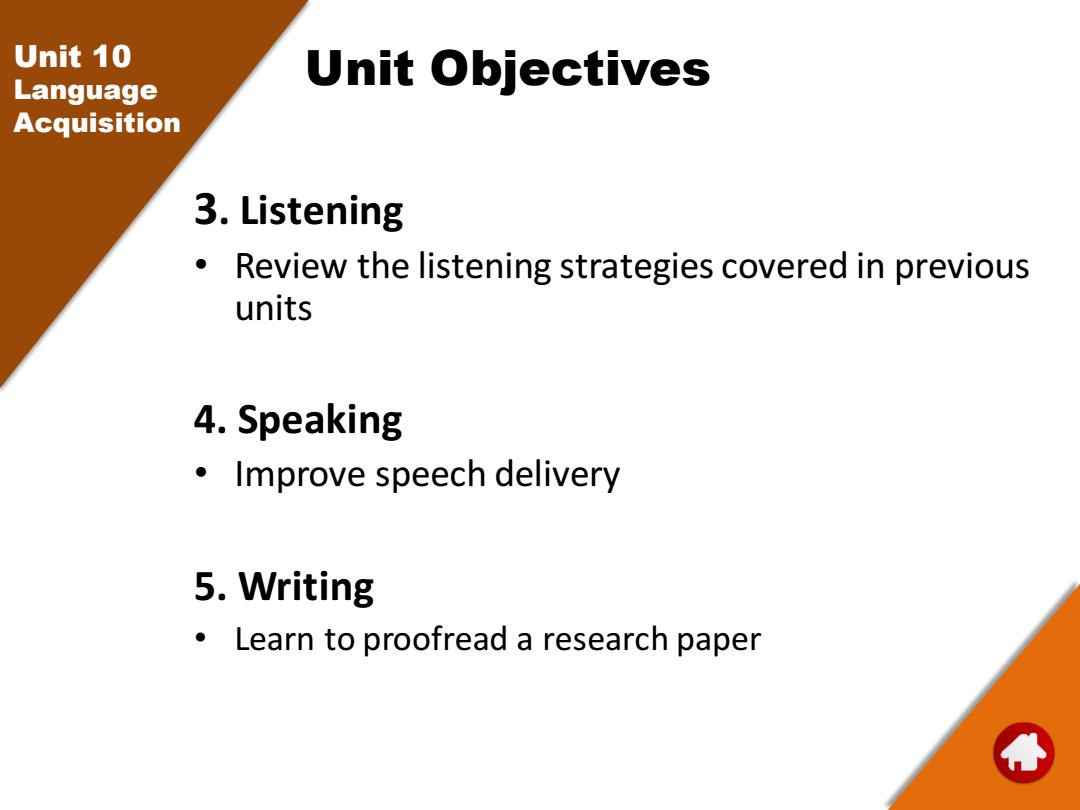
Unit 10 Language Unit Objectives Acquisition 3.Listening Review the listening strategies covered in previous units 4.Speaking Improve speech delivery 5.Writing Learn to proofread a research paper
Unit Objectives 3. Listening • Review the listening strategies covered in previous units 4. Speaking • Improve speech delivery 5. Writing • Learn to proofread a research paper Unit 10 Language Acquisition
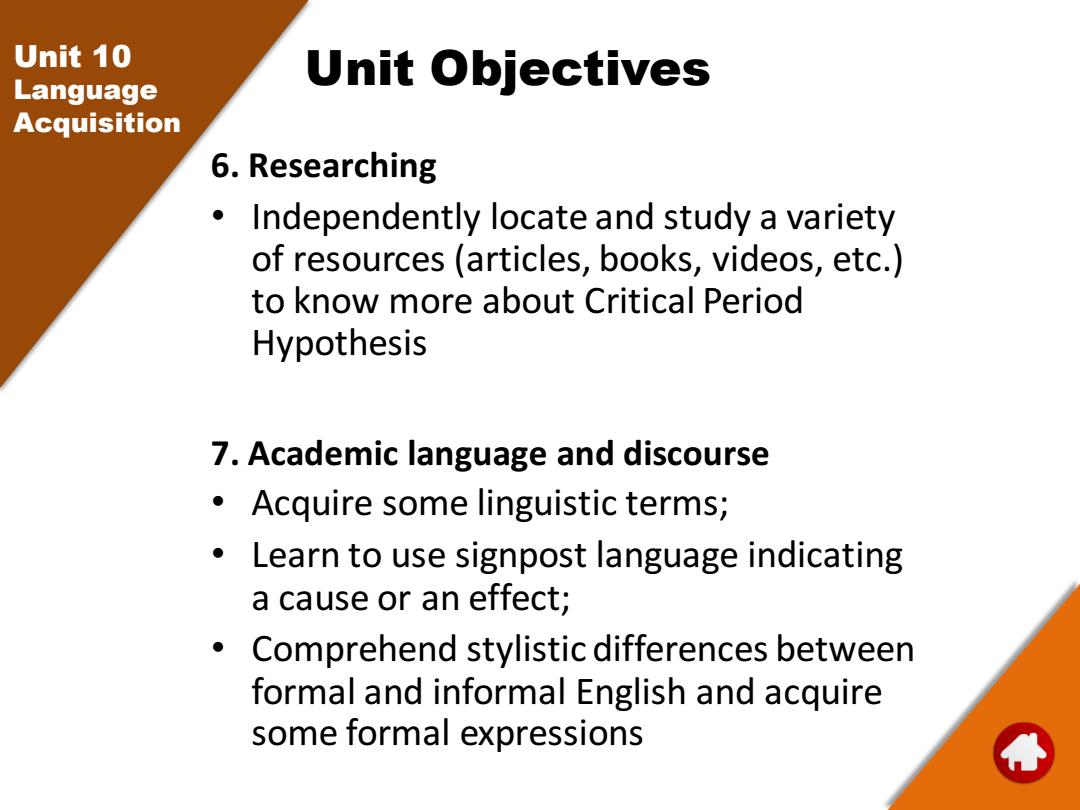
Unit 10 Unit Objectives Language Acquisition 6.Researching Independently locate and study a variety of resources (articles,books,videos,etc.) to know more about Critical Period Hypothesis 7.Academic language and discourse Acquire some linguistic terms; ● Learn to use signpost language indicating a cause or an effect; Comprehend stylistic differences between formal and informal English and acquire some formal expressions
Unit Objectives 6. Researching • Independently locate and study a variety of resources (articles, books, videos, etc.) to know more about Critical Period Hypothesis 7. Academic language and discourse • Acquire some linguistic terms; • Learn to use signpost language indicating a cause or an effect; • Comprehend stylistic differences between formal and informal English and acquire some formal expressions Unit 10 Language Acquisition

Text A Lead-in Q1.What is language? Work with your partner and figure out a definition of“language
Text A Lead-in Q1. What is language? Unit 10 Language Acq uisition Work with your partner and figure out a definition of “language

Text A Lead-in verbal communication C你好 BonjouD Ciao! annot Hello?Hei! 今日!hoa/ 70 林
Text A Lead-in verbal communication Unit 10 Language Acq uisition

Text A Lead-in nonverbal communication 示
Text A Lead-in nonverbal communication
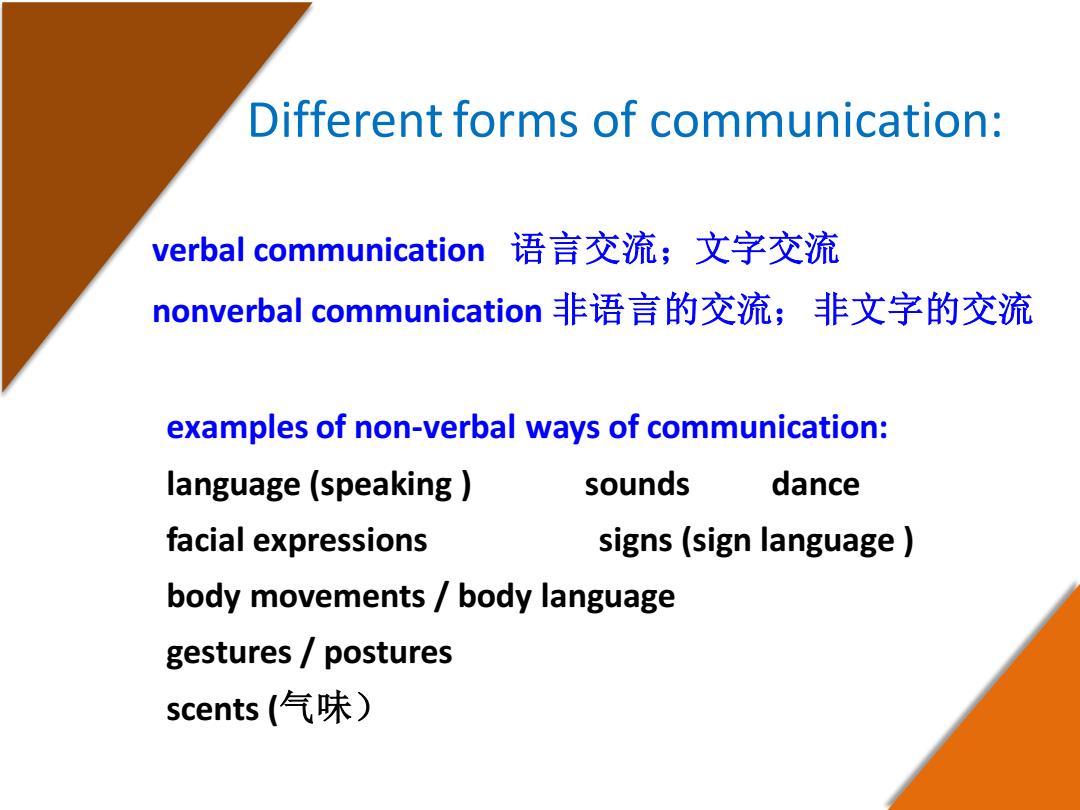
Different forms of communication: verbal communication语言交流;文字交流 nonverbal communication非语言的交流;非文字的交流 examples of non-verbal ways of communication: language(speaking sounds dance facial expressions signs (sign language body movements body language gestures postures scents(气味)
Different forms of communication: examples of non-verbal ways of communication: language (speaking ) sounds dance facial expressions signs (sign language ) body movements / body language gestures / postures scents (气味) verbal communication 语言交流;文字交流 nonverbal communication 非语言的交流;非文字的交流

Text A Lead-in What is language? conclusion: Language is a system that consists of the development, acquisition,maintenance and use of complex systems of communication,particularly the human ability to do so; and a language is any specific example of such a system
Text A Lead-in What is language? Unit 10 Language Acq uisition conclusion: Language is a system that consists of the development, acquisition, maintenance and use of complex systems of communication, particularly the human ability to do so; and a language is any specific example of such a system